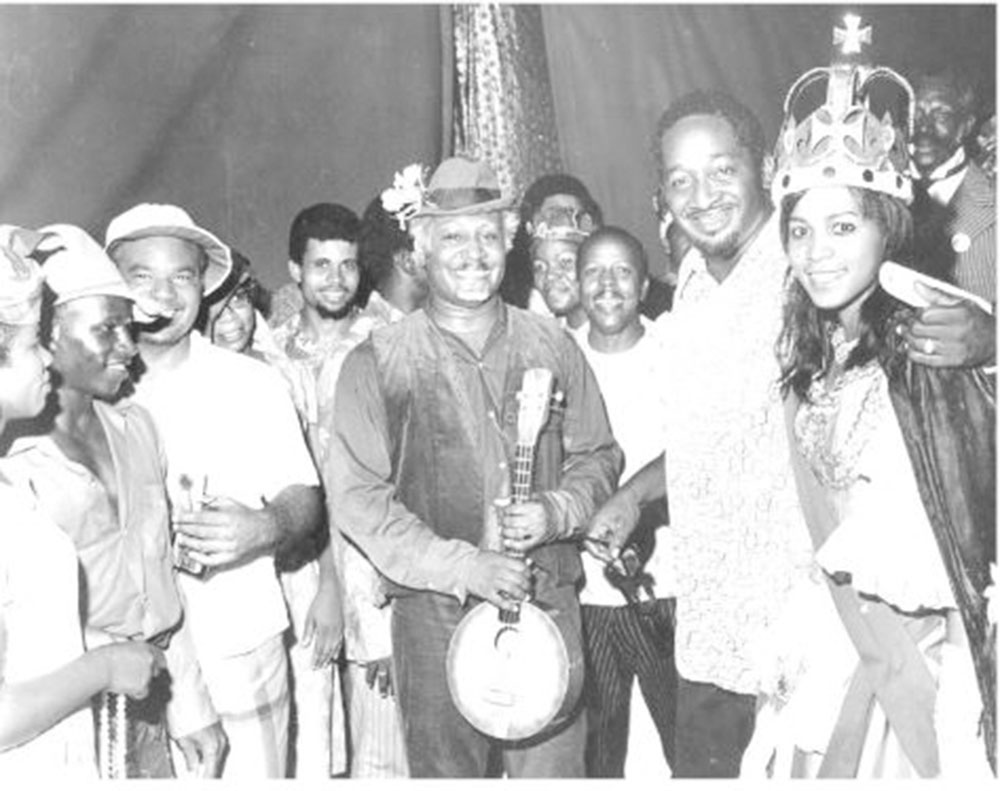A three day virtual symposium is being organized to examine the history, significance, and legacy of the first Caribbean Festival of Arts (Carifesta), which was held in Guyana, while marking the fiftieth anniversary of the event.
The Inaugural “Caribbean Festival of Arts as Prism: 20th Century Festivals in the Multilingual Caribbean” will be held from August 5 to August 7, 2022, and a call has been issued for papers and participation from scholars (including graduate students), artists, Carifesta ‘72 participants, and the Guyanese and Caribbean diaspora to participate.
The symposium is being organised as part of the 2022 Guyana Folk Festival by the Guyana Cultural Association of New York, Inc. (GCA) in association with the Asian American Studies Program of Binghamton University, Rice University, and Ohio University in the US; the University of Guyana, the Festival City Youth and Parents Organization, and the Moray House Trust in Guyana; and Guyana Speaks in the UK.
According to the call for participation, which is aimed at securing the involvement of the people and nations who were originally invited to the inaugural Carifesta, the symposium will examine the inaugural Carifesta, its significance, and its legacies.
“We will collectively explore its possibilities, achievements, and missteps. We will also use this seminal moment as a prism through which Caribbean culture, nationalism, transnationalism, and postcolonialism can be analyzed. We aim to harness the spirit of Carifesta ‘72 as a transnational and inclusive space to facilitate dialogue about Guyanese and Caribbean culture,” it states.
“Festivals, by design, are ephemeral entities that take place at specific moments in time. The documents (e.g., pamphlets, brochures, performance guides, personal photographs) that are produced are often taken home by participants. The festivals remain in their memories. Thus, a goal of this symposium is to bring scholars and Carifesta ‘72 participants together to exchange knowledge and to document this festival, which remains in personal and collective memories. We aim to collect physical materials and oral histories to facilitate the creation of a digital archive that could expand to embrace other regional festivals,” it adds.
The organisers have invited proposals for four categories of presentations: (1) Contextualizing/Historicizing Carifesta ’72; (2) Experiencing Carifesta ’72; (3) The Legacies of Carifesta ’72; and (4) Festival Methodologies.
They are welcoming presentations from Guyanese, Caribbean, and transnational perspectives and will be accepting proposals and presentations in all languages spoken in the Caribbean.
Possible topic areas for papers or presentations include but are not limited to:
• Contested visions, interpretations, experiences, and memories of Carifesta ‘72.
• Personal accounts and recollections from multimedia storytellers (e.g., singers, writers,
filmmakers, dancers, oral historians, and visual artists).
• Case studies related to Carifesta ‘72 (e.g., African American participation or specific
presentations or concerts).
• Similarities or differences between Carifesta ‘72 and earlier or contemporaneous festivals,
including, but not limited to, national festivals (within the region), the Caribbean Festival
(Puerto Rico 1952), the Commonwealth Arts Festival (Britain 1965), the First World Festival of
Negro Arts (Senegal 1966), and the Second World Black and African Festival of Arts and Culture (Nigeria 1977).
• The role or place of Carifesta in the ecosystem of regional festivals.
• Intersectional identities and experiences of Carifesta. These include the intersections of race,
gender, sexuality, class, and religion.
• The aspects of culture that were highlighted, identified, or invented as part of nationalist
movements and identities in the decolonization era. What aspects of these cultures were chosen
to represent a “nation” (from Guyana and Jamaica to Venezuela and Brazil) at Carifesta ‘72?
Why did nations such as Peru and Mexico choose to participate?
• Approaches to understanding, contextualizing, historicizing, and/or theorizing the importance
or centrality of festival culture in the Caribbean.
• The intertwining of (festival) culture and politics or the political. This can be a discussion of the use of (festival) culture in political organizing, especially regarding politics or the political in
Carifesta.
• The role of (festival) culture in political, economic, cultural, and/or mental decolonization.
• Approaches for analyzing the performance of religious rites, rituals, and celebrations within
the secular form of festivals such as Carifesta.
• The effects of festivals (and research about festivals) on methodology and disciplinary
specificity.
• Theorizations about what can be gleaned from the history of pan-Caribbean exchanges such as
Carifesta and/or about what has been silenced through their understudied nature.
Submissions can be sent to CarifestaAt50@gmail.com by May 16, 2022.
Interested persons are advised that for paper presentations, they should send a 250-word abstract or description and a short biography, while for submissions by artists, JPEG and/or MP3 or MP4 files and a short biography should be sent, including the title, work date, process, dimensions, and medium.






